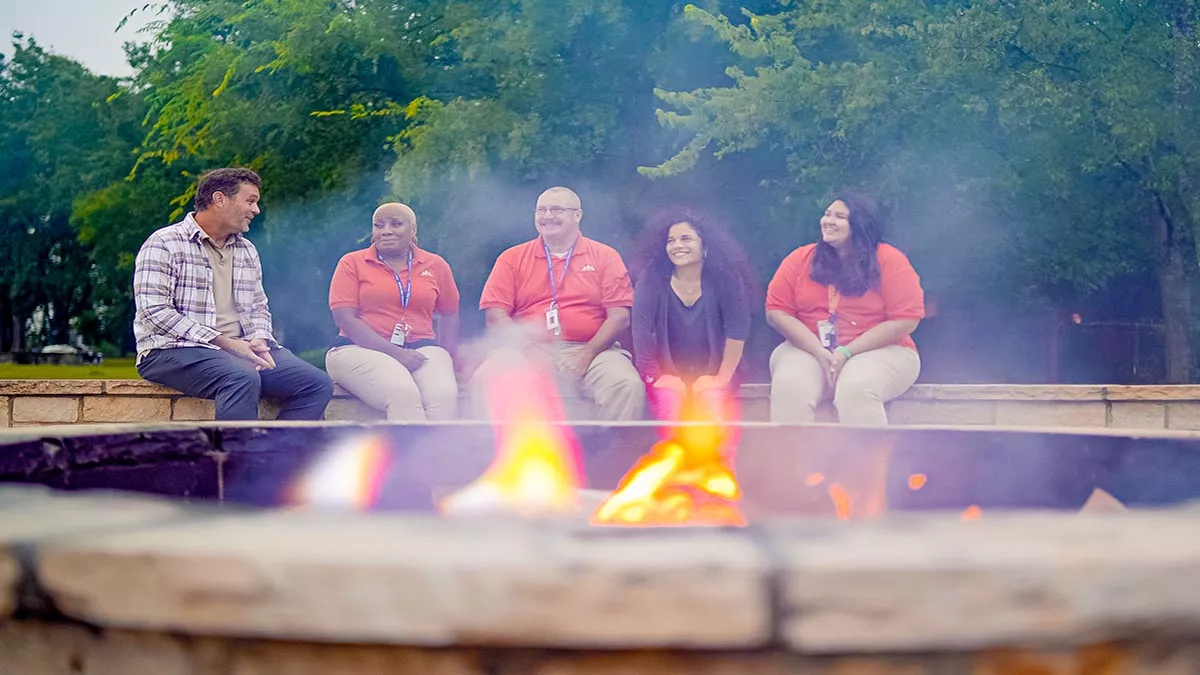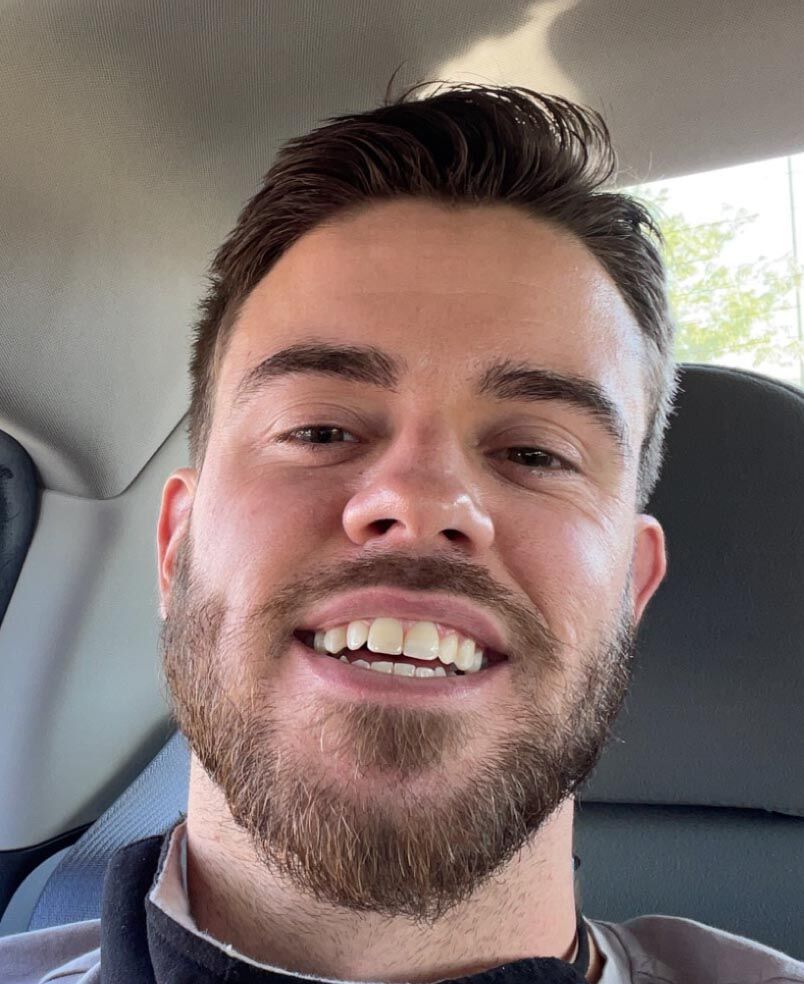Alumni Spotlight: Trey’s Recovery Story

Our Discovery Point Retreat alumni family is filled with amazing people who exemplify what drives our passion for addiction recovery. No matter where their stories began or what experiences brought them to our doors, each of our alumni prove that recovery is always possible.
To help celebrate the members of our recovery family and give our alumni an opportunity to share their stories, we are now hosting Facebook Live events with hosts Noelle Carmen and Alumni Counselor Jasmine Jackson. During each Live we invite a Discovery Point Retreat alumni to share their recovery story as well as their experiences in treatment and what they’ve accomplished since graduation. This week alumni Trey shared his powerful testimony.
Follow us on Facebook for more alumni stories and to stay up to date with all things Discovery Point Retreat.
Trey’s story begins like many other stories: experimenting with drugs and alcohol as a teenager. It all started with a friend asking if they could smoke weed together- it was curiosity. Not fully addicted at that point, he was drinking on the side at parties, where he was introduced to a pill named Molly. One time is all it took to become addicted. Trey remembers the drug coming on and thinking, ‘I can talk to the girl. I can get a job- I can do anything,’ as all his worries withered away.
On one hand, drug use felt like overwhelming euphoria; on the other, there was a new, crippling fear of losing the high. After the ‘Molly’ wore off, he explained to his friends how their experiences didn’t do the drug justice in his eyes. He couldn’t wait another week to use Molly again as his friends initially planned; he found himself craving more immediately . That urge solidified the idea that his drug use—the addiction—was different from others’ experiences.
His mother was very open about drugs and alcohol during Trey’s adolescent years. She never hid anything from him. Trey was aware his father abused crack cocaine and meth and was in-and-out of prison most of his life. His mother would often say:
“Look, drugs and alcohol make you feel amazing . . . Eventually, it will catch up to you and destroy your life.”
Aside from his father’s absence, his childhood was typical. He and his mother lived in a nice neighborhood and there wasn’t any neglect or abuse. As a teen he would continue using weed, alcohol, and Molly. Eventually the fading effectiveness of the drugs and his desire for a greater high would lead him to try just about anything.
“I wanted to feel different.”
Soon, though, the physical effects of his substance use became difficult to ignore. Trey struggled to look in the mirror after he became forty pounds underweight. He didn’t like who he’d become.

Trey began stealing from his mom and friends and doing whatever he needed to get more drugs or alcohol. Eventually, his actions led to his arrest and the judge set a high bail for his release. Trey recalls calling his mother and promised that was the end of his misconduct. She paid his bail, and he was released only to repay her by stealing money and pills from her purse. Later that night Trey met up with friends to get high once more. This disease causes addicts to treat others badly, but addiction also creates a web of self-deception; It forces you to believe things that aren’t true.
“The term rock bottom, you can always keep digging, but there’s this point that I had. It’s funny. I went to DPR three times. The first time I wasn’t ready. The second time I was almost there. I ended up getting out of treatment and stayed sober for a month. I told myself, here’s what’s going to happen: I’m either going balls to the wall with this thing or I get high until I can’t move anymore. I ended up shooting anything in my veins.
It brought me to my knees. My thought process behind this was, ‘I’m going to do this [relapse]- I’m going to do this right. I’m going to ride until the wheels come off. It only took two weeks, so it didn’t take long.”
Trey walked into detox barely coherent enough to know where the staff was taking him. This was his third attempt to get sober.
Trey remembers thinking, “I just need suboxone—the withdrawal from the meth and heroin is going to be awful.”
The first few days were filled with sleeping. At this stage, Trey realized he only had two options: get high and die, or get sober by working the steps. He feared the societal stigma around the fact that it was not his first time in treatment. However, he also understood that while falling off track was difficult, getting back up is what ultimately matters.
At the beginning of therapy, Trey admits to falling victim to the ‘pink cloud’– the false feeling of invulnerability that sometimes occurs in early recovery. However, his lack of life skills and coping skills along with external stressors and demands quickly caught up with him. During his last time in treatment he realized sobriety itself had to be why he was getting help at a drug and alcohol rehab. While the other goals of finding employment and developing healthy relationships were also important, none of them would be achievable without the base skills necessary for lasting sobriety.
It’s easy to stay sober when you’re surrounding my thirty other people with the same goal in an environment intended to support that goal. It’s much harder when the rest of life gets factored back in.
Trey goes on to say, “[I had a lot of] self-induced trauma because of drugs. Going through continuous withdrawal, what I was doing to get the drugs– stealing from my friends. There’s shame and guilt from doing all of that.”
During treatment, Trey met with a sponsor who walked him through The Steps. Through that mentorship he finally came to understand addiction as a disease. They discussed how the “one shot, “one time”, “one pop”, and “one high” always went too far for too long. Where previous attempts at sobriety would leave him feeling raw and exposed, sending him back to old habits, this time he’s learned to embrace the process of growth and self-discovery.
Talking about Stigma, Trey uses an analogy to explain his thoughts:
“Think about a drowning man who didn’t know what to do. Eventually, he needs to take a breath– whether that be a breath of water and death or a breath of fresh air. To get to the fresh air he will need to fight to be on top of the water. I’m going to fight by doing the steps, doing the work, whatever it is I need to do […] Step one was my first breath. Knowing what I know about the book, I knew it was the answer. All these people were sober in the rooms, and I couldn’t understand how. I went into treatment that last time and I knew at my innermost core that I was an alcoholic and an addict.”
Recovering from drug and alcohol addiction is possible. If you or a loved one is struggling, reach out for help today.

